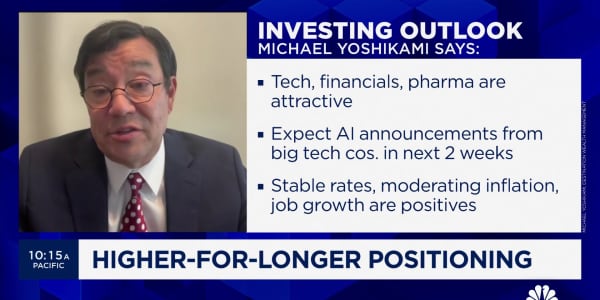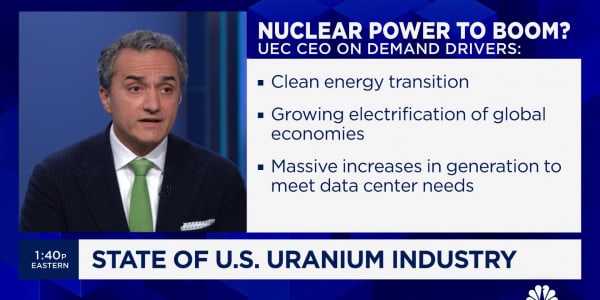As Treasury feeds us a steady diet of how much money taxpayers are making off the Troubled Asset Relief Program, you have to wonder why nobody thought of this idea sooner.
After all, if the worst that can happen from the collapse of the banking system is that we make money rescuing failing institutions, then who really cares how much risk they take? Can the Department of Bank Bailouts be far behind?
This seems to be the undercurrent of the crowing from the Treasury and bailed-out banks themselves as we get regular accountings of who is paying back how much and at what profit.
Most recently, Robert Benmosche, CEO of American International Group,appeared on CNBC andbragged that Treasury would reap a profit of as much as $15 billionfrom the bank’s TARP repayments.
AIG recently gave back $6.9 billion and has made an offer of $15 billion to buy back the garbage bonds that Treasury took off its balance sheet during the insurer’s rescue in September 2008.
If what Benmosche says is true, then Treasury actually might be lowballing the figure it has provided regarding how much the TARP will make on the $411 billion it has disbursed so far.
“Treasury currently estimates that bank programs within TARP will ultimately provide a lifetime profit of nearly $20 billion to taxpayers,” Treasury said in a recent news release. But if taxpayers make $15 billion off AIG alone, the total figure could climb much higher.
True, the notion of a TARP “profit” requires some creative accounting.
As numerous critics have pointed out, much of the reason for the windfall comes from the removal of much of the toxic crap from bank balance sheets onto the already hideous balance sheets at Fannie Mae and Freddie Mac.
The National Taxpayers Union calls the profit “a myth, a fiction of Washington accounting…because the banks that got bailed out through TARP shuffled all their bad assets over to Fannie Mae and Freddie Mac, which got their own separate bailout. So, really, it should be no surprise that they’re relatively healthy.”
This seems a small detail to the government’s financial minds as banks big and small pay back their TARP cash.
Of the big banks, TARP recently made a $12 billion profit on Citigroup that came on top of $13.5 billion from General Motors and $9.6 billion from Ally Financial and AIG's MetLife equity stake.
Some of the recent warrant purchases have come from First Horizon National ($79.7 million returned to taxpayers); 1st Source Corp ($3.75 million); Fifth Third Bancorp ($280 million); National Penn Bancshares ($150.6 million); Lakeland Bancorp ($20.1 million); Stockmens Financial ($12.4 million); Bridge Capital Holdings ($8.9 million) and Heritage Bankshares ($2.6 million).
Each time it reports a TARP payback, the Treasury includes a stock line in its releases that goes something like this: “Treasury currently expects that TARP investment programs taken as a whole…will result in little or no cost to taxpayers.”
Taxpayers, per se? Perhaps not, at least not in a direct way from TARP.
Homeowners are another story. After all, it was the housing market—the crippled housing market, which is now in the throes of a double-dip with horrendous sales and price trends—that suffered the most and continues to suffer.
Last year saw a record 2.9 million foreclosures, and RealtyTrac reports that 1 in every 577 homes received a foreclosure notice in February.
The housing market suffered after banks loaned money to people who couldn’t pay it back, then packaged those loans into bonds which were repackaged into collateralized debt obligations and sold at will to deep-pocketed Wall Street investors.
When the underlying value of the bonds collapsed as foreclosures built, both the financial system and the real estate market underpinning those sucker’s bets collapsed.
So as Treasury counts the money and sells TARP as the greatest thing since sliced derivatives, the final tally is far from finished. Any thought about creating the Department of Bank Bailouts probably will be on hold.
“They cut out the cancer and passed it right along to Fannie and Freddie,” the National Taxpayers Union said of the TARP execution. “The banks have issues with the current foreclosure mess, but the worst loans are no longer their problem, they’re taxpayers’ problem.”
__________________________________
Companies mentioned in this post
Citigroup
General Motors
American International Group
First Horizon National
1st Source Corp
Fifth Third Bancorp
National Penn Bancshares
Lakeland Bancorp
Bridge Capital Holdings
Heritage Bankshares
___________________________________________
Questions? Comments? Email us at
Follow Jeff @ twitter.com/JeffCoxCNBCcom
Follow NetNet on Twitter @ twitter.com/CNBCnetnet
Facebook us @ www.facebook.com/NetNetCNBC






